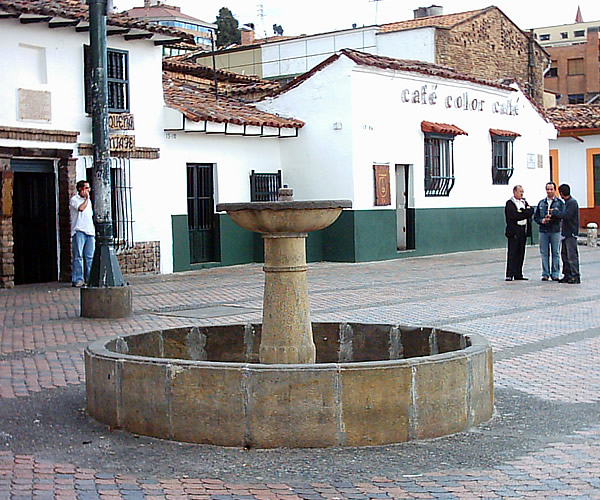
Economy of Colombia
A member of the OECD, Colombia has the third largest economy on the South American continent, behind only Brazil and Argentina. In 2017, its GDP ranked 31st in the world at Purchasing Power Parity, and its GDP per capita 84th in the world at Purchasing Power Parity. The country is known for having stable, market-friendly policies and a liberal economic stance. A major event was the implementation of the FARC peace deals starting from 2017. Lowering violence to unprecedented levels, the accords have stabilized the country politically and opened up entire new regions to investment.
Colombia had witnessed strong growth at the start of the decade and increases across all major economic indicators, but in spite of that, during the last years the Colombian economy has been hit by a heavy devaluation of its currency against the US Dollar. GDP, expressed in dollars, dropped significantly between 2014 and 2015, from 381 to 293 billion USD, despite a 3% growth in local currency. The country has managed to partially recover since, but the 2017 dollar-equivalent of GDP was still well below 2014 numbers. The Colombian economy is expected to grow by 2.6-3% in 2018, according to local government projections, and by 3.1% in 2019.
However, despite sustained growth and improvement in social indicators, the country remains the most unequal in the OECD and the second most unequal in Latin America after Honduras, with a Gini coefficient of 53.5 and over a quarter of the population living below the poverty line, according to data published by the National Administrative Department of Statistics in 2017.
The country's main export product is petroleum, and its economy is heavily reliant on the mining industry, which is currently the country's main engine of growth. Other commodities exported are coal, nickel and emeralds. Industry accounts for around 38% of both GDP and workforce, producing a wide range of products, from textiles and apparel to domestic appliances and electronics. Agricultural products are also among Colombia's top exports. The country is among the most important producers of coffee, sugar cane, bananas and plantains in the world. Tourism has been a recent bet, as the country gradually leaves behind its violent past and more and more regions are becoming accessible and safe for visitors. The tourism sector in Colombia has seen double-digit increases in the last few years and is projected to increase further.
Inflation was of 4.31% in 2017, decreasing from 7.51% in the previous year and 5% in 2015. Unemployment was at 8.96% of the total population in December 2017, and had increased to nearly 10% by mid-2018. However, employment levels were at 58.7% at the end of 2017, as informality is pervasive.
The currency in Colombia is the Colombian Peso (COP).
Economy of Bogota
Bogota is Colombia's largest city, concentrating over a fifth of the country's population and one fourth of its GDP. Living standards are relatively higher in Bogota than in the rest of the country, as the city has a poverty rate of 12.4% and a Gini coefficient of 49.8. Nevertheless, unemployment stands high at above 10% despite the capital being the center of trade and industry.
The capital city is a hub for the service industry. Many multinationals opt for Bogota when choosing a headquarters for their operations in the region, and the city has an excellent support service infrastructure in fields such as accounting, finance, IT, human resource management and engineering.
The commercial sector is one of the most well-developed in the country, Bogota boasting over a hundred shopping centers many of which were recently opened. Constructions are another pillar of the city's economy, especially in the past few years. Manufacturing also accounts for a significant share of the local GDP, as factories operating both within the city limits and in its outskirts produce a wide range of goods from apparel to processed food and beverages.
Tourism is another economic sector on the rise in Bogota, the city attracting over half of the tourists entering Colombia annually.
Update 20/08/2018
Keep more of your money when transferring funds overseas!

If you want to move money abroad, from Colombia or to Colombia for example, Fexco provides efficient and secure global bank to bank transfers and bespoke payment solutions for both business and personal clients.
Why Fexco
Fexco provides a secure international money transfer service online or by telephone with bank beating fx rates and low fees. Specialises in high-value transfers.
Main characteristics
Fexco will help you to keep your overseas money transfer costs to a minimum.
| Margin | 0.6% |
|---|---|
| Regulator | FCA |
| Fee | £10 < £5K or Free > £5k |
| Mini | £1K |
| Ccy | All (130 currencies, incl ‘exotics’) |
| Services | Repatriation of funds, Property, Regular payments, High Value payments, spot, online, telephone. |
Get an online quote today
When you are ready to make your transfer, John and his team will be available to help you with better rates and an unrivalled service to make sure your funds are delivered securely and speedily.
